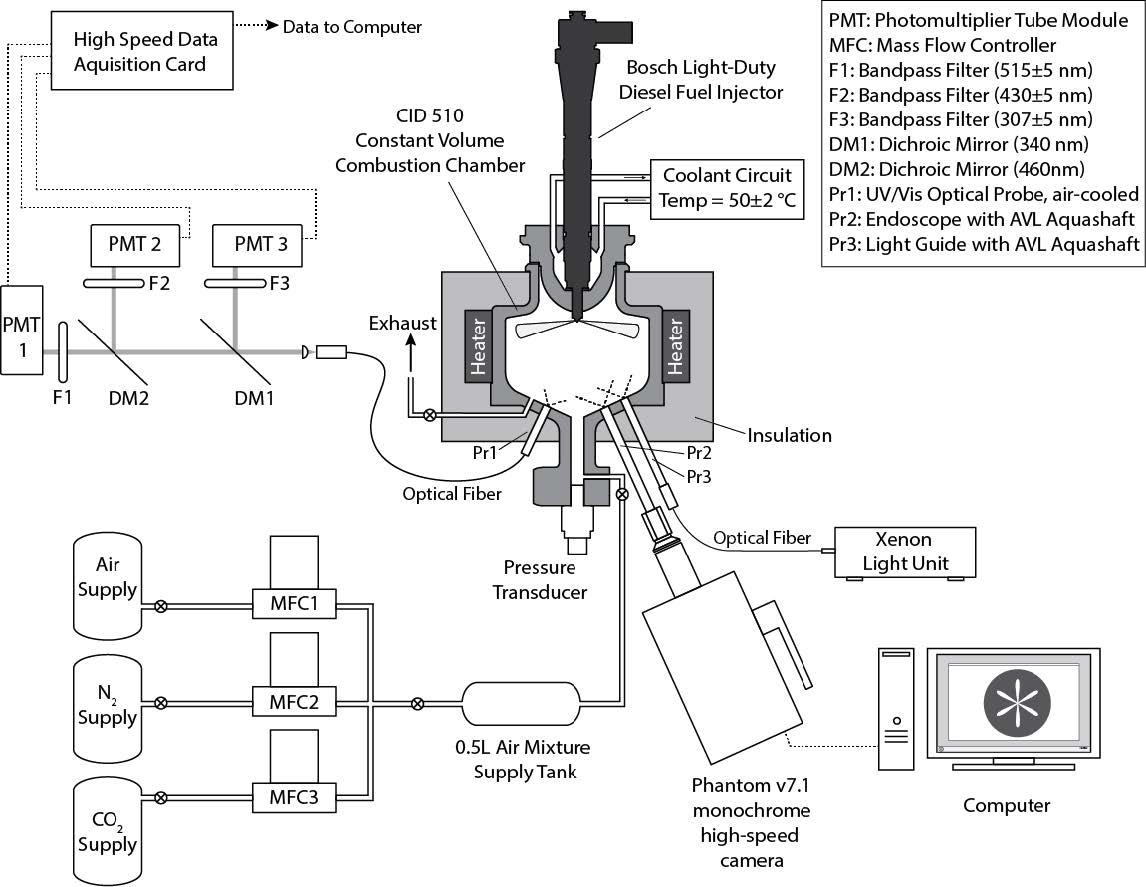Intelligent Power Systems
Annual PlanReaction Pathway and Elementary Ignition Behavior of Surrogates for JP-8 and Alternative JP-8 Fuels
Project Team
Government
Eric Sattler, U.S. Army CCDC GVSC
Faculty
Angela Violi, Jason Martz, University of Michigan
Industry
Peter Attema, Detroit Diesel - Daimler Trucks North America
Student
Dongil Kang, University of Michigan
Project Summary
Project duration 2013-2015.

Interaction between fuel chemistry and engine combustion system behavior will be investigated in a manner that is directly relevant to practical engine configurations and the JP-8 fuels upon which the U.S. Army relies. To achieve truly predictive simulation of engine performance on JP-8 and diesel fuels, chemical reaction kinetics for the combustion of the fuel must be developed and validated. The practical simulation of the diesel combustion process requires the use of simplified (reduced) chemical kinetic models and the consideration of model compounds or mixtures of model compounds (referred to as “surrogate” fuels).
Prior ARC research has been actively pursuing the development of a comprehensive JP-8 surrogate for heavy-duty compression ignition engine combustion. This work focuses on a detailed examination of that surrogate fuel, in comparison with practical JP-8 fuels, in a novel experimental system for assessing the reaction pathways and critical ignition phenomena. This information is intended to provide additional validation of the JP-8 surrogate fuel being developed by Violi and co-workers. This project will involve close collaboration with the Violi group on the surrogate fuel formulation, experimental conditions and application of these novel measurements. The measurements are intended to provide an intermediate step to validate simulations based upon the surrogate fuel representation of JP-8 and the kinetic models to describe its combustion. The motored engine experiment that will be utilized in the proposed project has been used extensively to study the ignition behavior of model compounds and practical fuels.
The research objectives of the proposed project are to provide validation experiments to compare the elementary ignition behavior, focusing on the chemical portion of the ignition delay, of the surrogate fuel formulations proposed by Violi and co-workers in comparison with practical JP-8 fuels. A secondary objective is to provide ignition data from a more elementary apparatus for comparison to chemical kinetic modeling calculations. In this manner, there will be detailed experimental comparison of ignition behavior (critical compression ratio, critical equivalence ratio, % low temperature heat release) between the surrogate fuels and practical JP-8 fuels. Also, there will be comparisons between the chemical kinetics models for the surrogate fuels and these experimental observations through 0-D ignition simulation.

